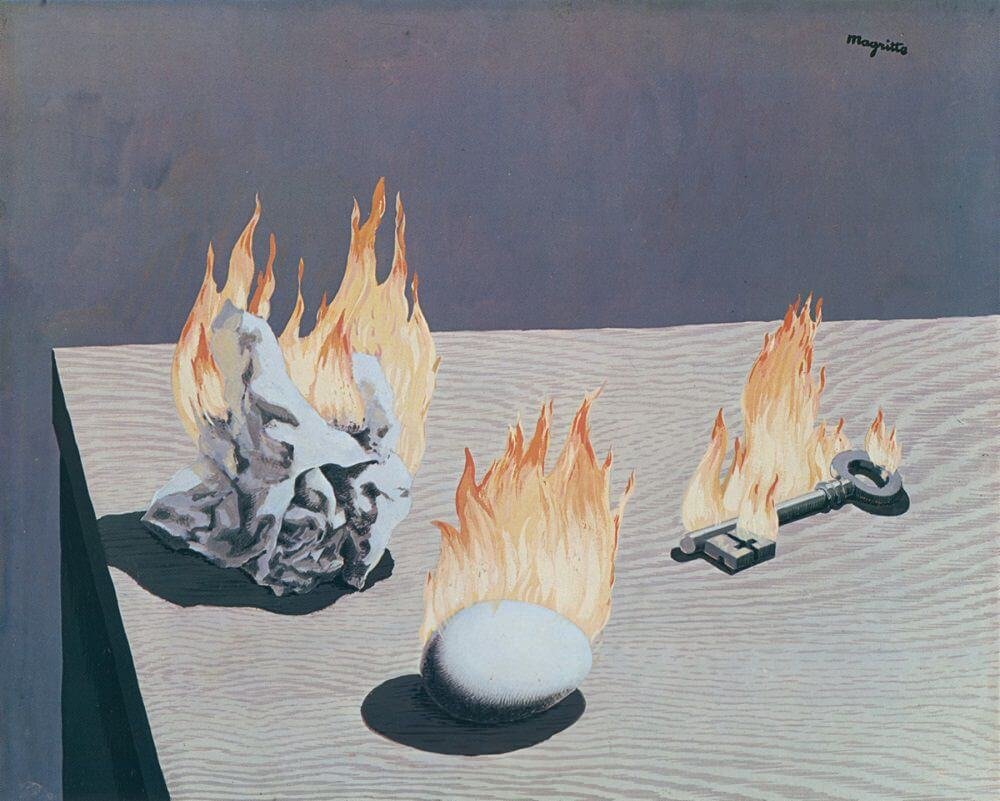Five Day Fast
My dad died last Sunday evening after lying in a morphine coma for five days. The family had spent the weekend with him but now my mom had gone to bed in the next room and my sisters had gone home. I was eating ice-cream by his bedside when he sighed his last breath.
The week before, I had been fasting-curious, drawn to both its altered state and alleged regenerative-effects, of which there are multiple. Because one may only experience the death of one’s father once, I decided I would lean in to this non-ordinary moment by not eating for the next five days, as my father had not eaten for the last five (sometimes he would hallucinate eating, lifting his hands up to a plate that hung above him, using knife and fork, bringing the fork to his mouth, chewing and swallowing); the hospice nurse had told us to not feed him, as his digestive system had already shut down.
So the ice-cream was my last meal and over the next five days I took only water, coffee and electrolytes, bringing my caloric consumption to near zero (the electrolytes have a few calories). During this time I was weepy, euphoric, wraith-like, exhausted, empty and raw; but my senses were heightened: my sense of smell was just incredible; walking by the halal carts would send me into ecstasy and nostalgia, traveling all over the world on the odor of roasting shawarma. I also would hallucinate smells: after hearing that my sisters were eating casserole, I laid in bed on the verge of sleep and was overwhelmed by the smell of hot casserole.
Fasting and mourning tend to go hand in hand in various traditions. The Jews of antiquity took fasting to the extreme, wearing sack cloth, wailing and living in ashes (but it was against the law to tear out your hair). The idea, as I understand it, is to remove one’s normal defenses so that you are face to face with loss. Ordinarily one might eat to forget, as in the mindless consumption that powers our society; eating as wolf-urge trance. Fasting, on the contrary, eliminates distraction; the pang of hunger mirrors the pang of loss. If, in the body, the energy invested in digestion is diverted to consuming damaged cells (in a peculiar process known as autophagy, see next post), perhaps the psyche follows the same path; the caloric fire becomes a funeral pyre.
Like in Heraclitus: “all is ever living fire, in measures being kindled and in measures going out.”
Halfway through my fast I became aware of how many external defenses I have at my disposal; “Why,” I asked myself, “do I keep checking my email?” Were I to practice this deprivation to the limit, I would not consume media, I would turn off my phone and deny all screens, I would refrain from speaking, I would remain alone in silence. There may yet come a day for this.
At the height of my fast my dad became an impossible object, like a tesseract, something only thinkable in chapters (some chapters are better than other). It is easier to mourn him with his friends, for whom he is a rather more singular entity.
Eating again was both relief and disappointment; no real food is ever as profound as the food one hallucinates from hunger.
The Ladder of Fire, 1939, Rene Magritte
see also:

